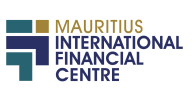Key Industries Driving Burkina Faso’s Economy
Burkina Faso, a landlocked country in West Africa, boasts a vibrant and diverse economy. Its commercial landscape is shaped by several key industries.
Agriculture and mining form the backbone of Burkina Faso’s economy. They provide livelihoods for a significant portion of the population and contribute to the country’s GDP.
In this article, we delve into these industries and others that are driving Burkina Faso’s economy. We’ll explore their impact, challenges, and potential for future growth.
Agriculture: The Backbone of Burkina Faso’s Economy
Agriculture plays a pivotal role in Burkina Faso’s economy. It employs a large portion of the workforce and contributes significantly to the country’s GDP.
Cotton is the main cash crop in Burkina Faso. It has a substantial impact on the economy, providing income for many farmers and contributing to exports.
However, the agricultural sector faces several challenges. These include climate change, limited irrigation, and reliance on traditional farming methods.
Despite these challenges, there are opportunities for growth and diversification. These include:
- Agribusiness and value-added agricultural products
- Sustainable farming practices
- Technological advancements in farming
“
Mining: A Golden Opportunity for Growth
Mining is another key industry in Burkina Faso. Gold mining, in particular, is a major economic driver.
The country is one of Africa’s top gold producers. This has attracted significant foreign direct investment and boosted exports.
Other minerals, such as zinc and manganese, are also mined. These emerging mining activities further diversify the economy.
However, fluctuating global commodity prices can impact the sector. Despite this, the mining industry remains a golden opportunity for Burkina Faso’s economic growth.
“
The Emerging Service Sector
The service sector in Burkina Faso is showing potential. It includes banking, telecommunications, and transport.
Banking and telecoms are growing rapidly. They are becoming vital parts of the commercial landscape.
Transport, too, is crucial. It supports other sectors and boosts economic activity. The service sector is indeed emerging as a key player in Burkina Faso’s economy.
Trade and Regional Integration
Trade plays a vital role in Burkina Faso’s economy. The country exports mainly to its regional partners.
Being part of the Economic Community of West African States (ECOWAS) has its benefits. It opens up a larger market for Burkina Faso’s goods.
This regional integration boosts the country’s economic growth. It also enhances its position in the global commercial landscape.
Small and Medium-Sized Enterprises (SMEs) and Entrepreneurship
Small and Medium-Sized Enterprises (SMEs) are key players in Burkina Faso’s business landscape. They contribute significantly to the country’s GDP.
SMEs provide employment opportunities. They also drive innovation and economic diversification.
Entrepreneurship is on the rise in Burkina Faso. This trend is creating a dynamic commercial environment.
Government initiatives are supporting this growth. They aim to foster a conducive business environment for SMEs and entrepreneurs.
Conclusion: Challenges and Prospects for Diversification
Burkina Faso’s economy faces challenges. These include climate change, commodity price fluctuations, and the need for diversification.
Yet, the prospects for growth are promising. With strategic investments and policy reforms, Burkina Faso can unlock its full economic potential.













